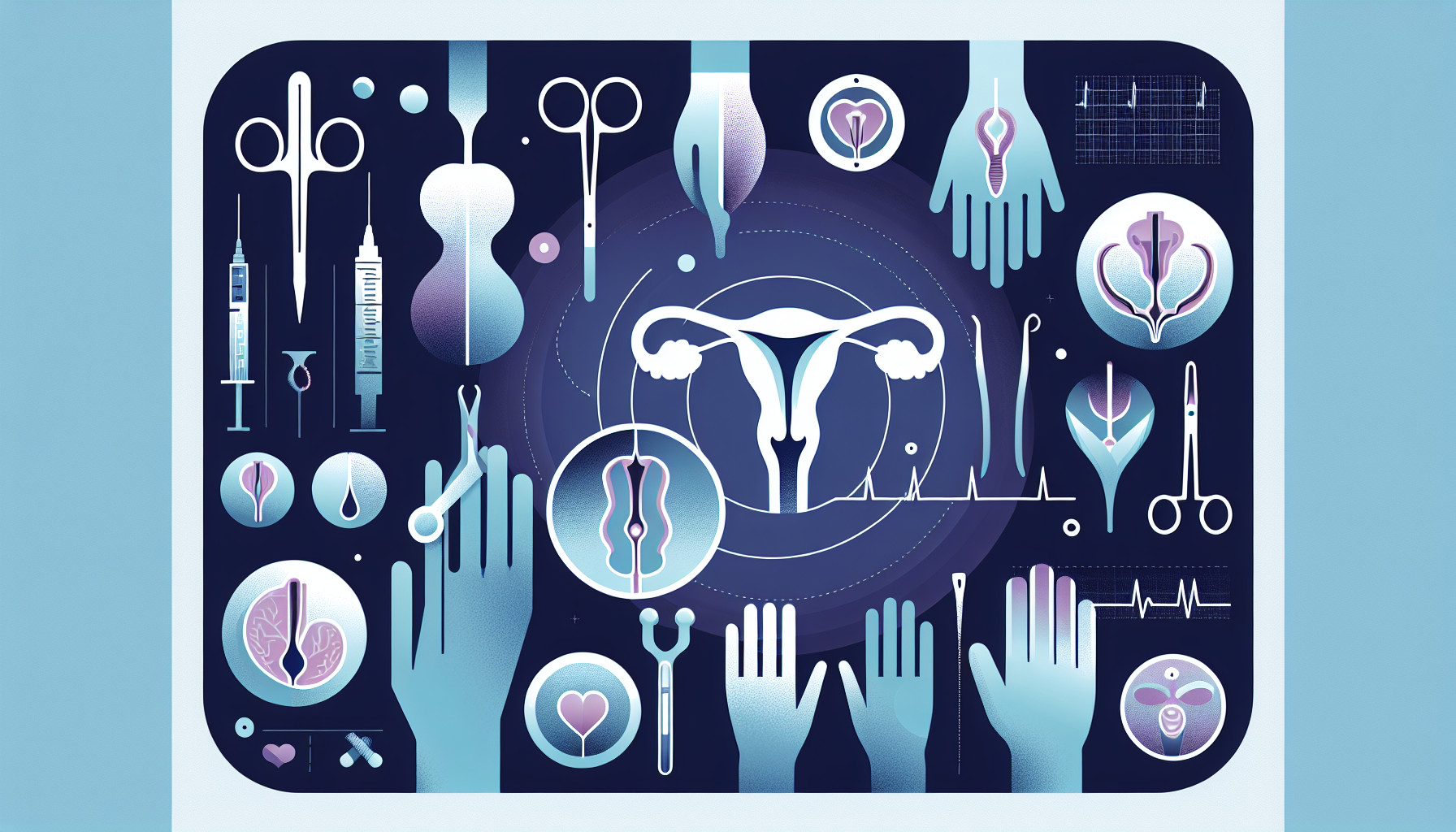Our Summary
This research paper aims to investigate the long-term complications of genital surgery (specifically, vaginoplasty) in transgender women. The main complication they focused on was genital prolapse, a condition where the organs in the pelvis slip down from their normal position and bulge into the vagina. The researchers carried out a review of studies between 1995 and the present that reported on the rates of genital prolapse after vaginoplasty in transgender women. They found 24 studies involving 3166 patients that provided enough data for analysis.
The average age of the patients at the time of surgery was about 38 years. The most common method used for the surgery was the penile skin inversion technique, used in 85% of the cases. The frequency of prolapse ranged from 0% to 7% with this technique, and from 1.6% to 22.7% with a different technique called intestinal vaginoplasty. The overall rate of prolapse was 2.7%, with a slightly higher rate in the intestinal-derived neovagina group (3.5%).
The only significant risk factor identified was a high body mass index (BMI) at the time of surgery. Strategies to prevent genital prolapse included attaching the new vagina to a ligament in the pelvis and using a vaginal pack. However, there isn’t much information on how to prevent or treat genital prolapse after vaginoplasty, and more research is needed. This is becoming increasingly important as the transgender population ages.
In simpler terms, this research is about understanding and managing a rare but significant issue that can occur after genital surgery in transgender women. The only known risk factor so far is having a higher BMI. More research is needed to figure out how to prevent and treat this issue.
FAQs
- What is the main complication investigated in this research paper on vaginoplasty in transgender women?
- What techniques were commonly used in the surgeries, and what was the frequency of prolapse with each technique?
- What is the only significant risk factor identified for genital prolapse after vaginoplasty?
Doctor’s Tip
A helpful tip a doctor might tell a patient about vaginoplasty is to maintain a healthy body weight to reduce the risk of complications such as genital prolapse. It is also important to follow post-operative care instructions carefully and attend regular follow-up appointments with your healthcare provider. If you experience any unusual symptoms or discomfort, be sure to contact your doctor promptly for evaluation and treatment.
Suitable For
Patients who are typically recommended vaginoplasty are transgender women who desire to undergo gender-affirming surgery to align their physical appearance with their gender identity. Vaginoplasty is a common procedure performed as part of gender confirmation surgery for transgender women to create a vagina and improve their quality of life. It is important for patients to undergo a thorough evaluation by a qualified healthcare provider to determine if they are suitable candidates for vaginoplasty. Factors that may influence the recommendation for vaginoplasty include psychological readiness, physical health, and hormone therapy status.
Timeline
Before vaginoplasty, a patient typically undergoes hormone therapy and counseling to prepare for the surgery. They may also need to undergo hair removal in the genital area. The surgery itself involves creating a vagina using penile and scrotal tissue, with options for additional tissue grafts if needed.
After vaginoplasty, the patient will need to follow post-operative care instructions, which may include pelvic floor exercises, dilating the new vagina, and avoiding certain activities for a period of time. They will attend follow-up appointments with their surgeon to monitor healing and address any concerns.
Long-term, the patient may experience complications such as genital prolapse, which can require further treatment or surgery. It is important for patients to be aware of the potential risks and to work closely with their healthcare providers to address any issues that may arise.
What to Ask Your Doctor
Some questions a patient should ask their doctor about vaginoplasty include:
- What are the potential long-term complications of vaginoplasty, including genital prolapse?
- What are the specific risk factors that could increase the chances of developing genital prolapse after surgery?
- What steps can be taken during surgery to reduce the risk of genital prolapse?
- Are there any post-operative measures or lifestyle changes that can help prevent genital prolapse?
- How common is genital prolapse in transgender women who have undergone vaginoplasty?
- What symptoms should I watch out for that may indicate the development of genital prolapse?
- How is genital prolapse diagnosed and treated if it occurs after vaginoplasty?
- Are there any additional precautions or considerations to keep in mind to reduce the risk of complications after surgery?
- What follow-up care and monitoring will be necessary to ensure the long-term success of the surgery?
- Are there any resources or support groups available for transgender individuals who have undergone vaginoplasty and are experiencing complications like genital prolapse?
Reference
Authors: Tran S, Guillot-Tantay C, Sabbagh P, Vidart A, Bosset PO, Lebret T, Biardeau X, Schirmann A, Madec FX. Journal: Eur Urol Open Sci. 2024 Jul 13;66:101-111. doi: 10.1016/j.euros.2024.06.013. eCollection 2024 Aug. PMID: 39076246
